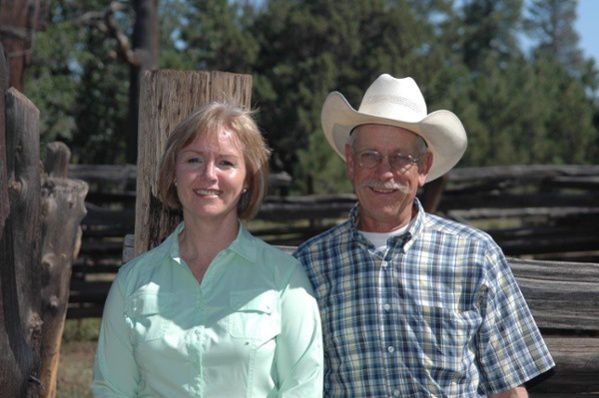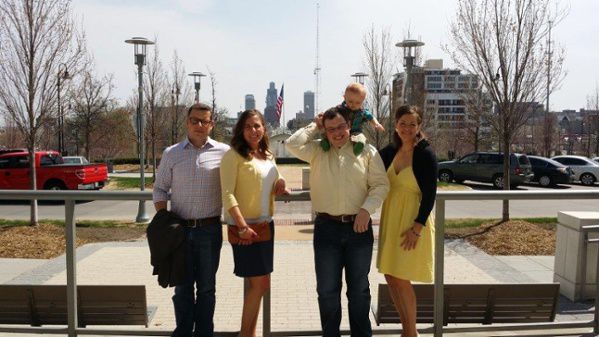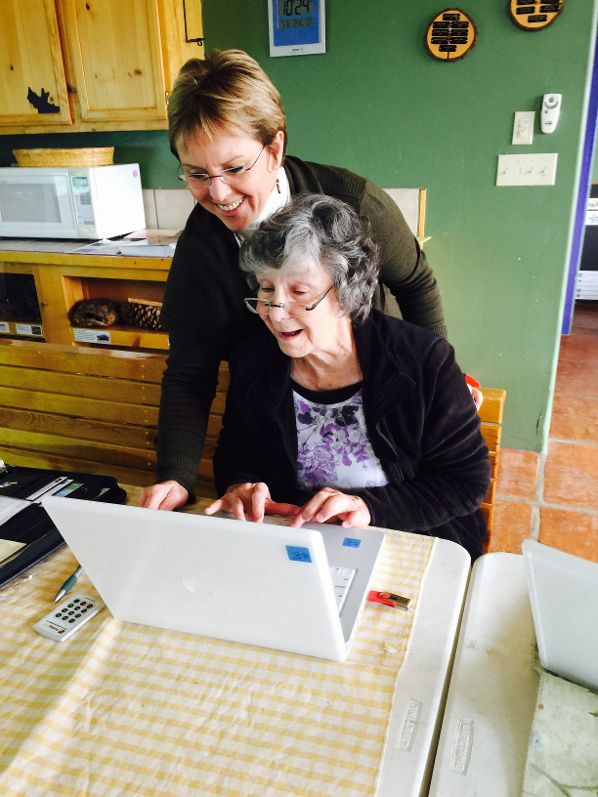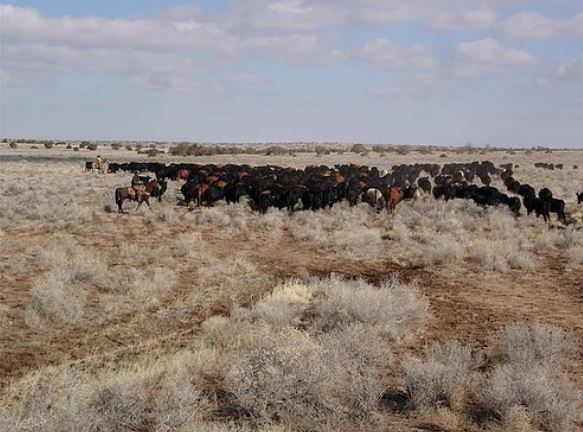Meet Arizona Agriculture's Prosser Family
Published
8/11/2015
By Julie Murphree, Arizona Farm Bureau: The Bar T Bar ranch family has had a long tradition of ranch improvements: land acquisition, water development, vegetative treatments, incorporation of a variety of grazing systems, and livestock production through selective genetics and culling practices. In a phrase, they care about the land and the animals – livestock and wildlife – that roam its range. But the story behind the story is this

An interview with Judy Prosser – Winslow, Arizona
Part of an ongoing series about Arizona Farming & Ranching families.
Tell us about your ranch: The Bar T Bar Ranch, Inc., is a Subchapter S Corporation owned and operated by Bob and Judy Prosser. An Arizona agribusiness since 1924, I represent the third-generation of the Chilson family. Our cattle operation runs approximately 1,150 commercial cows, 800 replacement heifers and 350 registered Balancer, Angus, & Gelbvieh cows.
For our history and from our website: Napoleon Warren “Boss” Chilson, my grandfather, had ranch holdings with his brothers in the Tonto Basin, south of Payson, as early as 1913. In 1924, he purchased the first summer permits, Hay Lake and Little Springs, plus numerous homesteads.

Judy and Bob Prosser understand the legacy they represent and as a result have established efforts like The Diablo Trust, a collaborative land management team in northern Arizona, founded by the ranch and their neighbors, the Metzger family.
Since most of the Bar T Bar lies south of the Hay Lake and Little Springs grazing permit area, the ranch soon pursued acquiring more deeded land and contiguous land, with the goal of eliminating the 70-mile cattle drive between Little Springs and the Tonto Basin (which required numerous 7–10 day treks through downtown Payson each year). As the move to the north continued, they purchased the Pitchfork Ranch from the Babbitt Brothers in 1939. The Pitchfork probably accounts for most of the northern portion of the present day Bar T Bar. It included the lands around Meteor Crater. Several years later, in 1941, the families acquired a 199-year lease on the Meteor Crater property from the Barringer Family. Other significant purchases between 1937 and 1946 included the Wolfolk allotment, two townships in the area, which provided the connection between the summer and winter ranges, and Moqui Ranch, all from Fred Bixby.
Ernest Chilson, my father, was instrumental in building the waterworks that keep water in front of the livestock and wildlife that make their home on the Bar T Bar. Soldier Annex Dam was enlarged in 1940 to store 2,600 acre-feet of water. The supply canals from Canyon Diablo to Soldier Lake were constructed. In 1942, the Chilson Canal was built, connecting Soldier Annex Dam to the Hay Lake headquarters, a distance of 7 miles. Tremaine Dam was built by Bar T Bar in 1950 to store more runoff for the irrigated pastures. Water is transmitted to over 60 stock ponds in the winter country on state and private land through 73 miles of canals and ditches, providing relatively permanent water for 80,000 acres of rangeland.
In 1952, Ernest launched the first large-scale juniper-management program in Arizona. This aggressive program continued for 16 years. Some 40,000 acres were treated in several
In 1990, the Prosser and Chilson families purchased most of the ranch properties from their partners, the Tremaines. Properties that were not purchased included Moqui Ranch and the most of the Hay Lake farmlands. To make up the loss of summer grazing land, Bar T Bar, Inc., purchased the adjacent Lost Eden Allotment in 1996 from the Kennedy family.
With the generational transition to the Prossers, Angus and Gelbvieh were integrated into the traditional Hereford herd in the 1980s — hence, the versatile Balancer cattle of today. Currently, steer calves and bred commercial replacement heifers are merchandized in the fall, and registered bulls in the spring and fall.
What changes have you seen
In the very recent years, an additional 28,000 acres of
What is your educational background (i.e. Degree(s), certifications, honors)? I grew up in Flagstaff and went on to the University of Arizona, receiving my bachelors in Animal Science & Ag Education. My plans were to become a Livestock Extension Specialist. Bob, my husband, is from Mead, Colorado and went to CSU. We met in Houston, Texas, when I was working for the American International Charolais
Will anyone in your family – younger generation – pursue farming, ranching, or agribusiness? Both our boys, twins, are in agribusiness. Warren is a research analyst for a hedge fund, called SWAT, in Omaha, Nebraska. Spencer and his partner own MPAgrilytics, in Memphis, Tennessee. Their service provides agriculture commodity data, trends, forecasts, etc. We are so proud of both of them for going out on their own. They have had lots of good, broad ag experience since they graduated from CSU. They are helpful to us now because of their economic and financial backgrounds. If one or both ever come home, they will have had some valuable experience that will only help them

The next generation of Prossers includes (From left) Warren, Kathleen, Spencer with little Burton on his shoulders and Meg. The boys in agribusiness stay very engaged in all things agriculture.
What are your community activities? Over the years Bob has been active in the Arizona Cattle Growers' Assn, serving as its president, and chairman of the Federal Lands Committee for several years. I was on the Arizona Cattle Industry Foundation for many years and served as its president too.
Bob and I are both active in The Diablo Trust, a collaborative land management team in northern Arizona, founded by our ranch and our neighbors, the Metzger family. I am also on the board of Meteor Crater, a natural landmark and tourist enterprise, which our ranch surrounds. Bob is currently on the advisory board for the Marley Endowment Chair for Sustainable Rangeland Stewardship at the U of A.

As with most successful businesses, farm and ranch owners are always looking for ways to improve the business. Here, Judy Prosser (standing) and Linda Merrell of Greenlee County assess a risk management tool during a workshop designed for agriculture businesses.
What do you love the most about farming, ranching, or the agriculture industry in general? I take pride what we do here: in knowing we are good stewards of this large and beautiful resource; in producing really excellent cattle that do well for other ranchers in the southwest. My husband has many talents: he can fix just about anything from an antique well engine to a cow needing surgery. He totally digs genetics and animal breeding. The amount of data he collects on our seed stock cows rivals that of anyone else in the country. Cattle are never perfect, but he works hard to make them as complete as possible. We also work on the consumer benefits
Something else I value about agriculture
What do you enjoy doing, and what is one fact/achievement that nobody knows about you? On a personal level, I seem to spend a lot of time in my office. But I do enjoy just getting out and seeing our cattle. Cows are my favorite animal. I enjoy our bull sale each
One fact about Bob, he’s a great country dancer. In my next life, I’d love to be a ballerina (she chuckles).
Why are you a Farm Bureau member? We have been Farm Bureau members since I was born, literally. My family has always believed in the power of organizations. I have fond memories of the Tall Pines Farm Bureau/Coconino Cattle Growers' picnics every summer at Mormon Lake. All the local ranchers would gather there to discuss the issues. Kids would play, moms would have brought their latest, greatest potluck dish, and the men would problem solve.
An Arizona agribusiness since
How will the next generation of agriculturalists have to operate? I think the challenges for the next generation will be numerous. They will have to be technologically savvy, which is really a bigger challenge for my generation than theirs. Because that is the way they communicate, they better hone their skills at face-to-face communication, which some of them are not so good at. Face-to-fact communication is still required in this business. They will have to know how to deal with consumers and a public that doesn't understand what we do or where their food comes from. And someone will still have to know how to fix the antique engine and doctor the cow. "Out-sourcing" is not always an option in an emergency. And they will have to learn how to deal with generational differences in management and the work ethic. Finding people with experience will be an on-going problem.
What is the best business advice that you’ve received and/or have given? Or, what business-oriented advice would you give young farmers/beginning farmers? My father suggested I major in business instead of Animal Science. I wish I had listened to him. That is still good advice. Most people go into agriculture because they love some part of it.